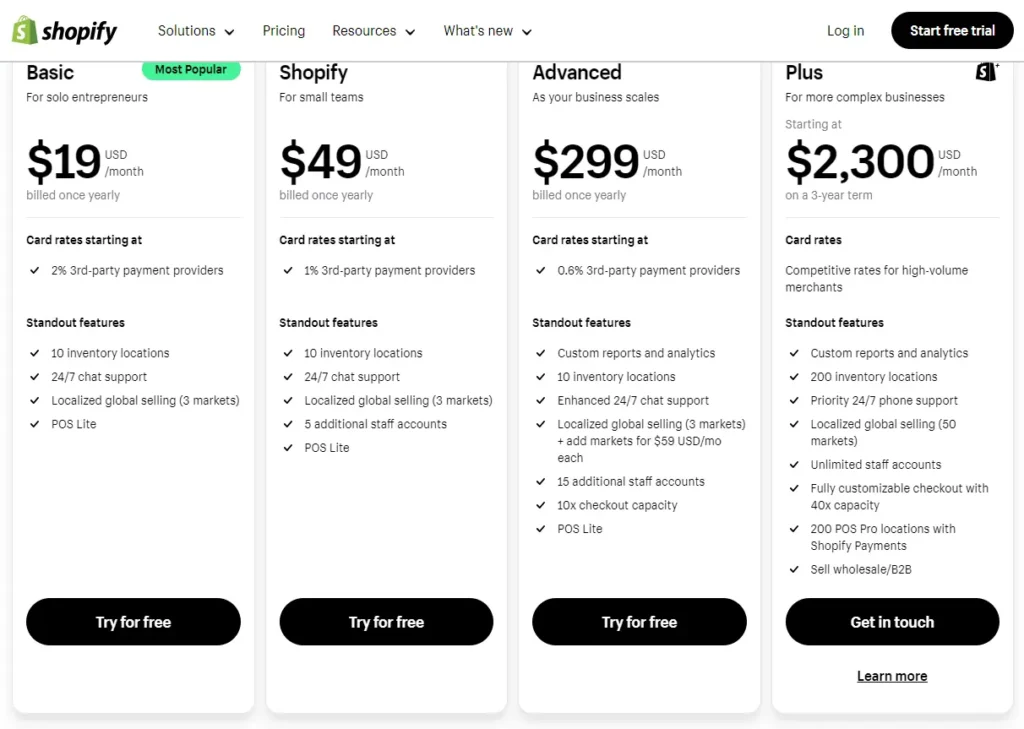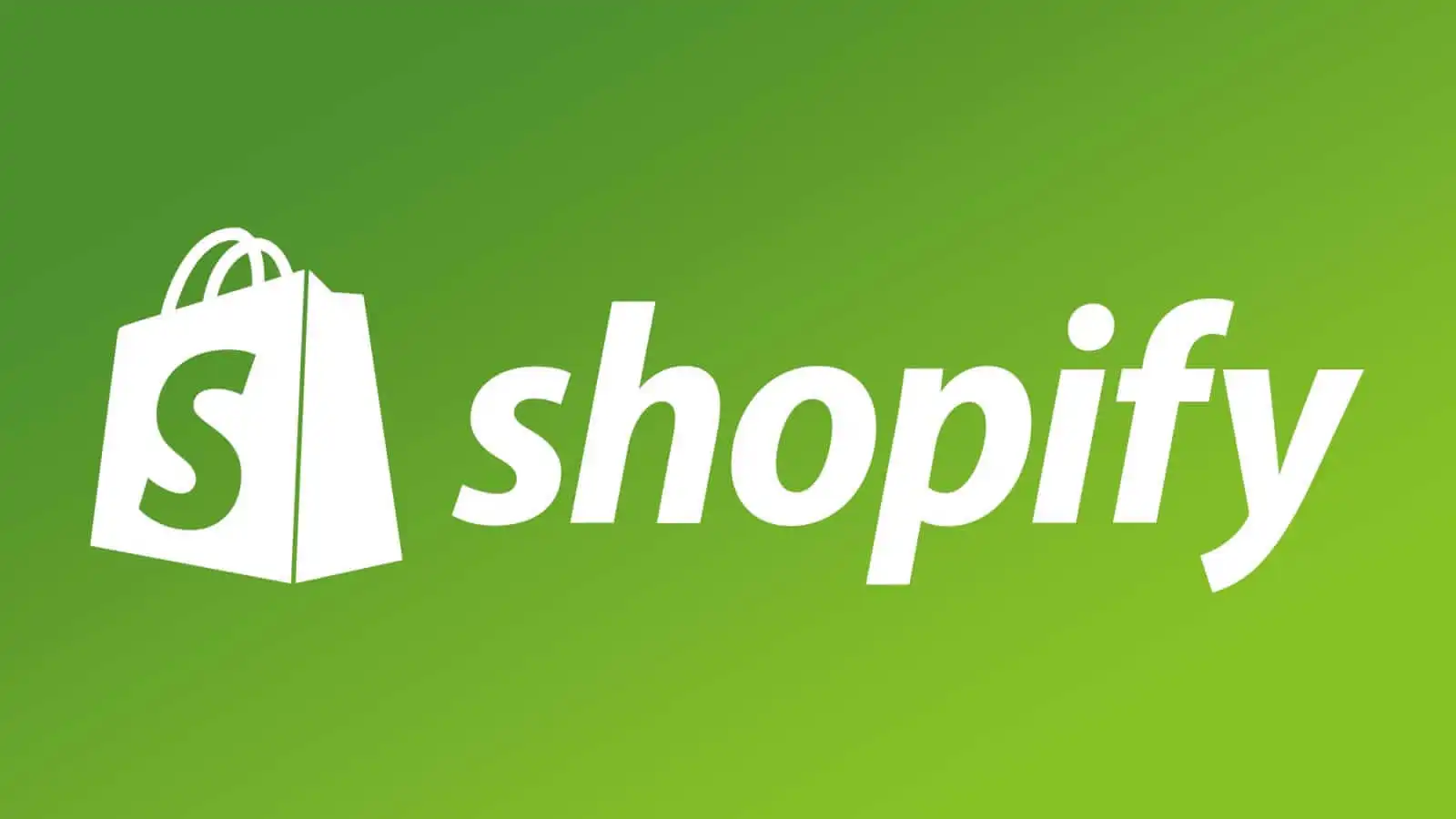In the rapidly growing world of eCommerce, Shopify stands as one of the most reliable platforms for businesses of all sizes. However, for small businesses, it’s crucial to find an affordable and easy-to-use platform that provides the right features. In this Shopify review for small businesses, we’ll dive deep into whether Shopify is the best choice in 2024 by examining its pricing, features, usability, and how it compares to other popular eCommerce platforms.
Table of Contents
Shopify eCommerce Platform Review 2024
Shopify continues to dominate the eCommerce space in 2024, offering an intuitive, feature-rich platform tailored to businesses of all sizes. Shopify’s infrastructure provides scalability, which allows small businesses to start simple and grow without having to switch platforms as they expand.
Notable 2024 Features
- AI-Driven Recommendations: Shopify now integrates AI tools to help business owners optimize product listings, pricing, and marketing strategies.
- Multi-Channel Selling: Shopify enables seamless integration with marketplaces like Amazon, Etsy, and social media platforms, allowing small businesses to reach a broader audience.
- Mobile Optimization: Shopify websites are highly responsive, ensuring that stores look professional on any device, an essential feature for modern small business owners.
Is Shopify Good for Beginners?
Absolutely! Shopify is one of the most beginner-friendly eCommerce platforms. For small businesses that are just starting out, Shopify offers:
- Simple Setup Process: Shopify’s drag-and-drop interface requires no coding skills, which makes it accessible for those with limited technical expertise.
- Comprehensive Tutorials: Shopify’s learning center and 24/7 support make it easy to find answers to any questions a beginner might have.
- App Store: With thousands of integrations available in the Shopify App Store, users can easily add tools like email marketing, SEO boosters, and customer service chatbots.
Shopify Pricing Review

Shopify offers three main pricing plans, along with an entry-level starter plan and enterprise solution:
- Basic Shopify ($19/month): Ideal for small businesses, this plan offers everything a beginner needs, including the ability to list unlimited products, track inventory, and access basic reporting.
- Shopify Plan ($49/month): Designed for growing businesses, this plan includes more advanced reporting, better shipping rates, and lower transaction fees.
- Advanced Shopify ($299/month): This plan is geared toward larger businesses, offering custom reporting, calculated shipping rates, and even lower transaction fees.
- Plus Plan ($2300/month): Competitive rates for high-volume merchants, Sell wholesale/B2B.
Although transaction fees exist, they can be reduced by using Shopify Payments. Overall, Shopify’s pricing is competitive, particularly for small businesses looking for a professional eCommerce solution.
Shopify Features for Digital Product Sellers
Digital product sellers are increasingly turning to Shopify for its specialized features, which include:
- Instant Download Capabilities: Shopify allows sellers to offer digital products, such as eBooks, art, or software, which customers can download immediately upon purchase.
- No Inventory Management Needed: Since digital products don’t require physical storage, Shopify removes the need for inventory management, reducing operational headaches.
- Custom License and Subscription Models: Shopify apps allow sellers to create custom licensing terms or offer subscription-based digital products like courses or memberships.
Shopify vs WooCommerce for Small Businesses
While WooCommerce (a WordPress plugin) is a popular alternative to Shopify, they serve different audiences:
- Ease of Use: Shopify is far easier to set up than WooCommerce, which requires more technical skills, hosting knowledge, and plugins.
- Scalability: Shopify is an all-in-one solution that can scale as your business grows, whereas WooCommerce might require significant upgrades in hosting and security as your store expands.
- Pricing: WooCommerce is technically free but requires paid hosting, themes, and various extensions, which can quickly add up. Shopify’s fixed pricing provides better cost predictability for small businesses.
Shopify Setup Guide for New Sellers
Setting up a Shopify store is a straightforward process. Here’s a quick guide for beginners:
- Sign Up: Visit the Shopify website and sign up for a free trial.
- Choose a Theme: Pick a theme from Shopify’s free or premium options that aligns with your brand.
- Add Products: List your products by uploading images, setting prices, and writing descriptions.
- Customize Your Store: Use the drag-and-drop editor to create a professional-looking store without the need for coding.
- Set Up Payment and Shipping: Configure your payment gateways (like Shopify Payments, PayPal, etc.) and decide on your shipping methods.
- Launch Your Store: Once everything looks good, hit publish, and your store will be live.
How Does Shopify Compare to Other Platforms?
Shopify’s biggest strength lies in its simplicity and all-in-one solution. When compared to other platforms like WooCommerce, Wix, Squarespace, and Etsy, Shopify consistently offers:
- Better Customer Support: 24/7 live chat, phone, and email support.
- Scalability: Shopify is designed to grow with your business, making it easier to add new features and tools as needed.
- Built-in Tools: Shopify provides essential marketing and SEO tools directly out of the box, whereas other platforms often require third-party apps or plugins.
Shopify vs Wix: Which is Better for eCommerce?
Wix is a popular website builder, but when it comes to eCommerce, Shopify has clear advantages:
- eCommerce-Specific Tools: Shopify was built for eCommerce, while Wix is more of a general-purpose website builder with eCommerce capabilities.
- Advanced Features: Shopify offers better inventory management, reporting, and integrations with major shipping carriers and marketplaces.
Shopify vs Squarespace for Online Stores
Squarespace is known for its stunning designs, but for eCommerce functionality, Shopify has the upper hand:
- eCommerce Features: Shopify provides more advanced selling features, including abandoned cart recovery and point-of-sale systems.
- Payment Gateways: Shopify supports a wider variety of payment gateways compared to Squarespace.
Shopify vs Etsy for Digital Product Sellers
If you’re selling digital products, Shopify may be a better option than Etsy for several reasons:
- Branding: Shopify allows you to fully control the branding of your store, while Etsy limits customization.
- Fees: Etsy charges listing fees and higher transaction fees, whereas Shopify has a more straightforward pricing model.
- Customer Ownership: On Shopify, you own your customer data, making it easier to retarget them via email marketing.
What Are the Benefits of Using Shopify?
Some key benefits of Shopify for small businesses include:
- Ease of Use: Its intuitive dashboard makes it easy for even non-technical users to manage their store.
- All-in-One Platform: Hosting, security, payments, and shipping are all integrated into one platform.
- Flexibility: Shopify offers thousands of apps and themes, allowing you to customize your store according to your business needs.
Is Shopify Worth the Price for New Businesses?
Yes, Shopify’s pricing is worth it for new businesses because it removes much of the complexity involved in setting up an online store. With its array of tools, apps, and professional templates, Shopify provides great value for small businesses looking to establish a strong online presence.
How Secure Is Shopify for Online Stores?
Shopify is highly secure and provides:
- PCI Compliance: Shopify is certified Level 1 PCI DSS compliant, which is crucial for processing online payments.
- SSL Encryption: Every Shopify store comes with SSL certificates, ensuring that customer data is encrypted and protected.
Conclusion: For small businesses, Shopify remains one of the best platforms to launch and grow an online store in 2024. It offers ease of use, flexibility, and a comprehensive set of features tailored to small business owners, whether you’re selling physical or digital products. By addressing pricing, setup, and comparisons with other platforms, Shopify positions itself as an all-in-one solution for small businesses
Read lenovo review here






Leave a Reply